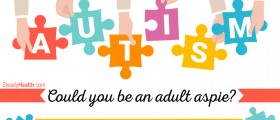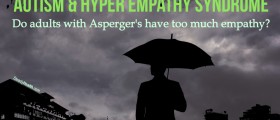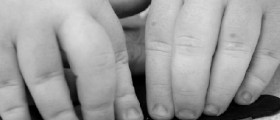
About Asperger Syndrome
An Austrian pediatrician Hans Asperger was the first to notice that some of his patients had difficulties in social interactions even though their cognitive and speech abilities were on the high level. These patients were reluctant to make new friends and talk to the people. Their behavior and communication showed no signs of understanding or ability to effectively interact with others.
Asperger Syndrome is nowadays related to the autism disorders but it is clearly differentiated from autism due to the unimpaired intelligence and language abilities. Asperger syndrome affects people in their early ages, during childhood reportedly after 3 years of age. People with Asperger syndrome lack the ability to participate in smooth-going conversation; they may misinterpret the other people's talking or reactions. This causes a lot of difficulties in starting and leading the conversations as children with AS may exhibit unusual facial expressions and speech varying in the tone and accent.
These children and people are unwilling to change their routines and behavioral patterns. They are often preoccupied with something that interests them so much that it sometimes verges on obsession. If they are, for example, interested in animals, they are likely to know the names of all common and rare species, their anatomy and habitats. Owing to their strange and one-sided interests, they may look peculiar and eccentric to other people. Their preferences do not change, so if they love particular clothes or food, they will stick to it and overreact if the desired clothes or food is not provided to them.
Those afflicted with Asperger Syndrome are over stimulated by loud noise, too much light or by rough materials. Sometimes they notice the noise and lights that others are unaware, so it is not an unusual thing for them to cover their eyes or ears and scream. Awkward movements and slow motor development characterizes such people who are often considered clumsy. The recognizable symptoms of a child with AS are poor social skills and lack of empathy, so their conversations mostly revolve around themselves. These children are slow in learning, have difficulties with mathematics and exhibit poor handwriting. However, this does not mean that their cognitive abilities are low; they are often very well informed about the subject of interest to them. Their language abilities are higher than average, often exceeding the development of other children, often demonstrating a comparatively advanced vocabulary. They may take things literally, taking offense to teasing and joking that is normally part of adolescent behavior.
>Causes
The cause of AS is unknown. Many wrongly assume that AS victims are not brought up well concluding they are spoiled, not realizing there is a neurological disorder present. Most researchers suggest it is an inherited condition or that bipolar disorders or depression have a role in developing AS. However, the causes are not yet defined.
There is no particular treatment for Asperger syndrome. Some medications may be included in the therapy, but treatment is all about improving social skills and easing the symptoms. Parents and an affected child go to the special education and training. The people with AS are involved in the psychotherapies, behavior therapies and therapies for improving social interactions or language.

















Your thoughts on this
Loading...